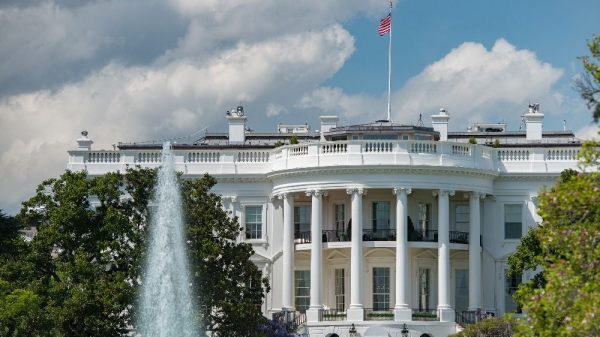A Congressman from Tennessee recently advanced a proposal to modify the Twenty-Second Amendment to allow President Trump to serve a third term in office. While a publicity stunt that will appropriately fail to achieve the tall criteria required for an amendment, this episode does raise an important constitutional question.
Does a democratic majority have the right to constrain future democratic decision-making? Nancy MacLean, a critic of public choice economics, would argue no. She construes any such attempt to put limitations on majoritarian decision-making as a sinister effort to put “democracy in chains.”
But most students of democracy, not to mention most democracies in practice throughout world history, have allowed some form of supermajority to create constitutional rules to constrain future democratic decision-making. The only exception is if those future democratic decision-makers can muster a similar supermajority to overturn the previous constitutional rule.
Why would democracies wish to set constitutional rules to constrain themselves in the future? The concept is relatively simple when you think about the conflicts that each of us faces in our own lives between our current and future selves. The current self wants to wake up early, to eat healthy, and to exercise. But we know our future self may shirk from the hardship of achieving these goals in the heat of the moment, so we craft an array of constraints, such as self-regulating rules or alarm clocks, to keep our future selves in line.
In the same manner, democratic supermajorities, perhaps through foresight or hard-learned experience, may seek to prevent outcomes that may be pursued by democracies in the heat of the moment but are inconsistent with the long-term principles of a free, democratic society.
Public choice scholars have identified a wide range of troubling tendencies of democracies, such as the tyranny of the majority or even the potential for voters to vote themselves out of democracy. A serious consideration of these tendencies forces even the most ardent defender of democracy to admit that, ironically, one of the most significant threats to democracy is unconstrained democracy. That is why constitutions and an appropriately difficult supermajority process to amend them are fundamental for sustaining democracy.
Strictly speaking, amending the Constitution in the United States is not a strict democratic referendum. This makes it even more difficult to pass or repeal amendments. Ironically and inconsistently, one of Nancy MacLean’s fears is that the threshold for amending the Constitution is too easy. Reasonable scholars can certainly debate the appropriate strenuousness of the amendment process. However, most recognize that while simple majorities are desirable to prevent gridlock in everyday political decision-making, substantially higher majoritarian thresholds are appropriate for meta-rules.
One of the longest-standing meta-rules passed down to us from early democracies was chief executive term limits. In my research, for instance, I have documented how historical Venice was obsessed with term limits. Binding constitutional limitations on the period of time that a single individual can hold a chief executive position helps balance power, discourage potential tyrants from seeking office, and mitigates conflict among factions. Most importantly, it protects democracies from the threat of tyranny that can emerge from a single individual accumulating excessive power from holding office too long.
The immense power, including military control, held by a chief executive alone makes it easy for ambitious or powerful officials to disband term limits. Vladimir Putin’s unilateral maneuvering in Russia offers a telling recent example. An approving democratic majority would make this process all the easier.
Even if, after President Trump’s second term, a simple democratic majority would be willing to elect him for a third term, they would likely come to regret their decision. An ancient adage states, “Do not wield a sword you don’t want to be wielded against you.”
While a third term for Trump may be too enticing for Republicans to resist, even in the best-case scenario, this opens the possibility of three terms for a future Democratic, populist president.
Thankfully, unlike the chocolate cake tempting dieting patrons at a restaurant, we have a Constitutional rule that prevents a democratic majority from indulging itself. And we should readily nix attempts to reject the centuries of historical wisdom and experience behind the twenty-second Amendment.























